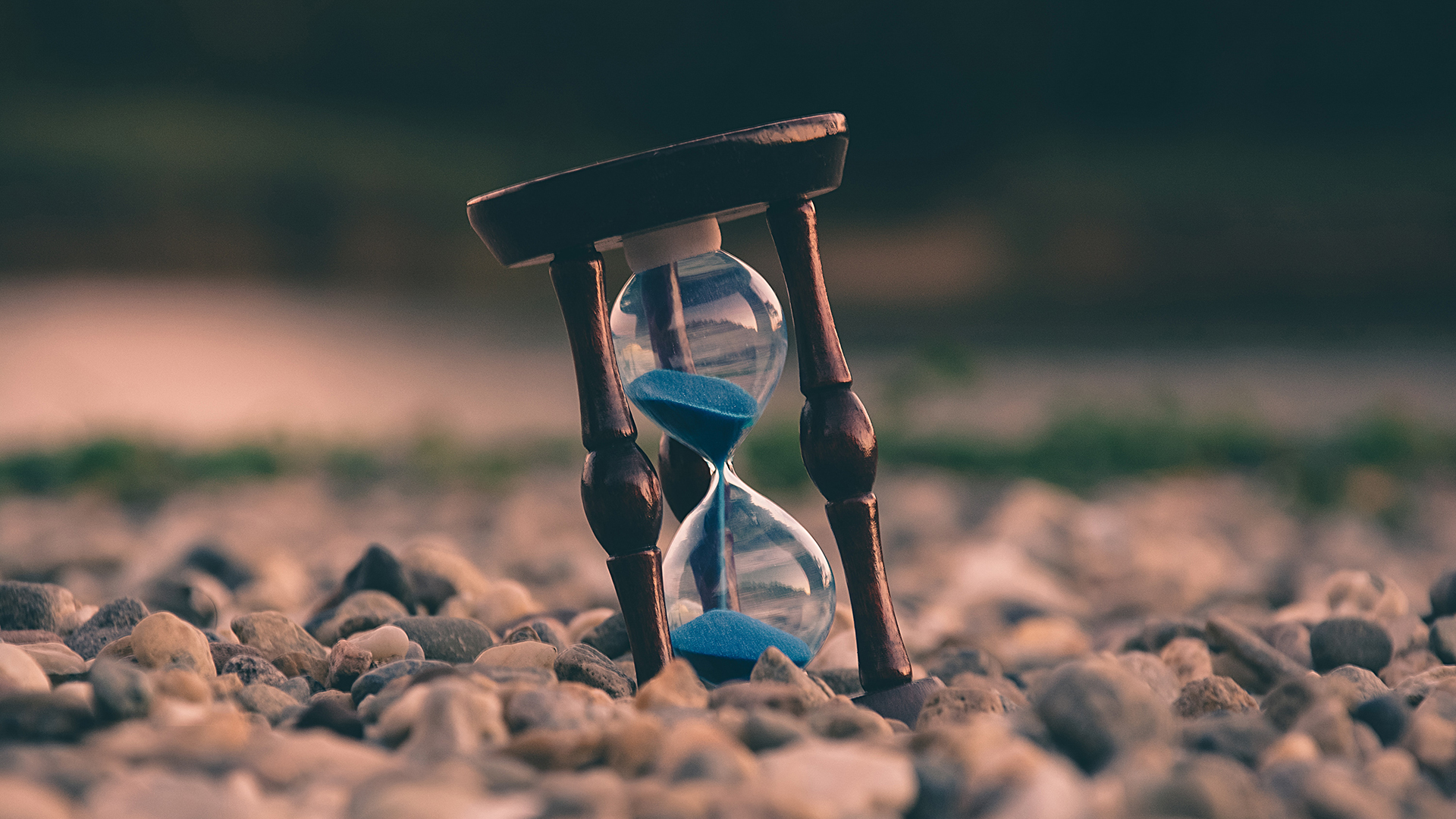There is a long-standing stigma attached to the topic of mental health. So much so, that millions of people are suffering in silence because openly talking about depression, anxiety, bipolar disorder, or suicidal thoughts is too uncomfortable, too painful or too personal to share. The innate fear that sharing these feelings might, in turn, affect your position at work or your relationship with friends and family is a strong silencer, as well. There is also a misconception that depression is purely chemical and can only be treated with prescription drugs. With depression numbers on the rise, it’s hard not to think, though, that something else is contributing to our misery and lack of luster. The importance of mental health is grand, especially as it connects to our modern culture, external environments, and physical health.
If you are one of an estimated 264 million individuals worldwide who reportedly suffer from depression, you’ve likely been told or have come to accept that the reason for your debilitating malaise is rooted in an out-of-your-control chemical imbalance. Many of us have been led to believe that our sadness, despair, fatigue, insomnia, loss of interest, and anxiety is a result of our brains not producing the proper amount of certain mood controlling chemicals, such as serotonin.
What if we’ve been going about this all wrong, though?
Chemical imbalance is definitely a real thing, genetics can be a contributing factor, and certainly past traumatic experiences are a major contributor to chronic depression and anxiety. But what if our modern culture, which includes components like lifestyle, diet, relationships, environment (both natural and human-made), and even technology, has a bigger impact on our emotional well-being than we are giving it credit for? What if we actually have a lot more control than we are giving ourselves credit for?
The Connection Between Our Modern Culture and Mental Health
Johann Hari, author of Lost Connections: Uncovering the Real Causes of Depression—and the Unexpected Solutions, expresses in perfect simplicity that “We all know that every human being has basic physical needs: for food, for water, for shelter, for clean air. It turns out that, in the same way, all humans have certain basic psychological needs. We need to feel we belong. We need to feel valued. We need to feel we’re good at something. We need to feel we have a secure future. And there is growing evidence that our culture isn’t meeting those psychological needs for many – perhaps most – people.”
We need to feel we belong. We need to feel valued. We need to feel we’re good at something. We need to feel we have a secure future. “
– Johann Hari
When our psychological needs aren’t being met, fully or even partially, depression and anxiety can fill the void. Even if a genetic predisposition, neurotransmitters imbalance, and past traumatic experiences are part of your emotional equation, ensuring that all of your other psychological needs are being fulfilled will only further support your journey to emotional wellness.
In a modern culture where great emphasis is placed on material acquisition as a marker of success, celebrity social media accounts, blue screens instead of blue skies, instant gratification, bigger is better, fake news, pay later, and a live-to-work-work-to-scrap-by methodology, it’s no wonder many of us feel disheartened, insignificant, emotionally exhausted, anxious, overwhelmed, sad, and hopeless.
How are we to stack up in a world that has forgotten about the true value of our time, nature over technology, natural beauty and authentic happiness versus professionally curated content, and a “livable wage” that is actually livable?
Now more than ever, we are inundated continuously from a thousand different directions with reminders of how our lives don’t “stack up”—how we don’t have enough money, enough stuff, enough free time, or how we aren’t talented enough, pretty enough, successful enough. And, because of this, we’ve inadvertently become disconnected; it’s this disconnect that further fuels depression.
Johann Hari writes in his latest book: “This pain you are feeling is not a pathology. It’s not crazy. It is a signal that your natural psychological needs are not being met. It is a form of grief – for yourself and for the culture you live in going so wrong. I know how much it hurts. I know how deeply it cuts you. But you need to listen to this signal. It is telling you what is going wrong. It is telling you that you need to be connected in so many deep and stirring ways that you aren’t yet – but you can be, one day.”
Instead of trying to “stack up” to misappropriated societal expectations, for the sake of our mental well-being, we must reconsider the way we are living our lives and assign value to our actual value in the workplace, home, and within. But to identify the voids where depression and anxiety tend to thrive, recognizing the external factors and environments that are affecting our internal well-being is essential.
5 Environments and Factors to Consider and Contemplate
The following five environments are ones that we all live in and include factors that can greatly contribute to the state of our mental health. We can even go so far as to say the root of our depression is within one or several of these environments.
Professional Environment

So, it’s safe to say that how you feel about the work you do, the place you work in, the people you work with, and the compensation you receive has a significant impact on your mental health.
Based on different surveys, Forbes reports that nearly 70% of employees are actively disengaged in their work; 53% of Americans are unhappy at work, and 79% of people who’ve quit a job report it’s because they didn’t feel appreciated.
Home Environment

Your home environment should be a haven, not a hell. Your relationship with your significant other, children, space, and sense of security can negatively or positively impact your well-being. Your home environment is where you take care of many of your physical needs, such as sleep and sustenance.
Since your physical body is also your home, this environment must include things like diet, lifestyle choices, and exercise.
Factors such as financial insecurity, an abusive relationship, a dysfunctional family unit, and addiction can threaten the relationship we have with our home environment.
Social Environment

Human beings are innately a social species. Whether you are extroverted and thrive on socializing, or introverted and value intimate interactions, we need each other. We need people in our lives that we can trust, depend on, laugh with, share our secrets and hobbies, and feel are just a phone call away when we need them the most. For some, this may be only one person, for others, this may be a village of people.
To feel loved, supported, valued, understood, accepted, and respected is a basic human need.
Natural Environment

Our disconnect from nature and the natural world has had some pretty devastating effects on our psychological well-being. Like we need food and friendship, we also need nature. We need the ocean, the forests, the mountains, the wildflower-covered meadows, the vast deserts, the charming community parks, and our home gardens.
Richard Louv writes about this in his book Last Child in the Wood. He talks about nature deficit disorder as “not the presence of an anomaly in the brain, but the loss of connection of humans and their natural environment. Staying close to nature improves physical, mental, and spiritual well-being. It makes us feel alive from the inside, and we should not compromise it for recent developments like urbanization, technology, or social media.”
According to Positive Psychology, spending time in nature has been shown to uplift those who are suffering from mild to major depression disorders, diminish stress levels and reduce cortisol in the body, and even motivate and energize those dealing with mental distress to work through their issues and find a way back to their version of normalcy.
Spending time in nature also reminds us that we aren’t alone, but instead are part of this beautiful planet and that there is solace to be found in our surroundings.
Past Environment

We all have a past.
Some of us enjoy reminiscing about ours, while others have actively buried theirs. The past, whether good or bad, is a part of who we are. We once lived it in, and for some, we still are. When our past includes traumatic and horrible experiences, such as abuse, violence, neglect, or grave life-altering events, our present can be overshadowed by the repeat reel of our past.
Depression loves to live in our dark pasts. Working through our histories so that we can set it free can be a painful and challenging process. But there is no rule that says you have to do it alone, and nor should you. But to live fully in the present, the past that doesn’t serve you well must be released.
4 Ways We Can Take Control of Your Mental Well-being
To take control of your mental well-being, varying degrees of change within your environments are likely necessary. There isn’t a quick and permanent “fix” to depression, as you’re probably already aware of. For some, medication and psychotherapy are an integral part of the healing journey. But whether they are or aren’t, if your environments aren’t conducive to your mental well-being, the result of happiness, peace, calmness, energy, positivity, and lightness will continue to feel just out of grasp.
To start taking back control over your mental health, here are four places you can begin.
1. Connect with Others
While our individual pasts and presents are entirely unique to each of us, we must remember that we actually aren’t alone in our feelings. The feelings that are associated with depression and anxiety are feelings that millions of us have felt and continue to feel. So, while depression and anxiety might feel isolating, it can actually connect us rather than alienate us if we allow it to.
Opening up about our feelings and experiences can provide a monumental release. Understandably so though, this can be very challenging, especially if you don’t have someone, in particular, you trust to present your most vulnerable self to. Fortunately, there are wonderful apps, services, and programs that help connect like-minded individuals with one another and professionals who can also help.
We created Wana knowing that people with chronic and invisible illnesses—people like us—needed a place like this. And we’re happy to say, it delivers… hope, direction and healing.”
– Nicole and Evan, Founders of WANA

WANA is one of those apps! WANA’s mission is to provide a community platform that fosters hope, direction, and healing for people with chronic and invisible illnesses. With a panel of six medical professionals, inspiring and informative content, podcasts, and interactive forums for those suffering from depression and other mental illnesses, WANA is a great starting point to start connecting with others who feel what you feel.
2. Disconnect from Detrimental Social Media Accounts
A social media purge can be incredibly liberating! According to Medium, the average person spends 2 hours and 23 minutes a day scrolling through social media. That’s over 19 hours a week and almost 1,000 hours a year looking at and reading about what other people are doing and thinking.
Imagine if your social media feed was filled with uplifting and positive posts and pictures from people who are living mindful, healthy, and inspiring lifestyles. Imagine if your time on social media made you feel motivated and uplifted, and also more connected to the people that you follow?
3. Clean Up Your Diet
Medical News Today states that “diet affecting mood makes sense. First and foremost, our brains need nutrients to function. Also, the food we eat directly influences other factors that can impact mood and cognition, such as gut bacteria, hormones, neuropeptides, and neurotransmitters.”
In a separate article, they shared the results of a 2017 study of patients with moderate to severe depression who attended 12 weeks of nutritional counseling and ate a fresh, whole food and nutrient-dense diet that also limited junk food (sweet, fried, refined, processed).
A diet that’s good for your brain is good for your entire body! In a 2016 meta-analysis, it was found that a healthy gut microbiome may also help reduce symptoms of depression. Probiotics that contain Lactobacillus and Bifidobacterium are key to gut health.
In line with diet, obesity has also been linked to an increased risk of depression. A predominantly plant-based diet that is relatively void of fatty, sugary, processed and refined foods will make it easier to maintain your weight, and in turn maybe your mood.
4. Amp Up Your Exercise
According to the Center for Disease Control, only 23% of Americans get enough exercise. Our predominantly sedentary and indoor lifestyle has taken a toll on our mental and physical wellness.
“Exercise is a powerful depression fighter for several reasons. Most importantly, it promotes all kinds of changes in the brain, including neural growth, reduced inflammation, and new activity patterns that promote feelings of calm and well-being. It also releases powerful chemicals in the brain that energize your spirits and make you feel good. Finally, exercise can also serve as a distraction, allowing you to find some quiet time to break out of the cycle of negative thoughts that feed depression,” as written by HelpGuide.
As a society, we need to move more! And even better if you can exercise and engage in physical activities that you enjoy outdoors. Yoga and moving meditations are also highly beneficial, and even more so when done in nature.
The Connection Between Mental Health and Physical Health
Keeping the mind and body separate is a dated approach to health and wellness. The mind, body, and spirit are congruent components of our holistic health. For far too long, we’ve treated physical symptoms to rid ourselves of discomforts, but until the root of any of our problems is identified, we will remain chained to a life of symptom management; which in and of itself can negatively affect our emotional well-being.

At the Paracelsus Clinic in Switzerland, a holistic approach to medicine is practiced, meaning that body, mind, and soul are an integral part of treatments. The Mind-Body Department of the clinic assists patients in recognizing a person’s own psychological, emotional, or spiritual being and how it might play a role in obstructing or blocking the healing process. The approach taken here is called Mind-Body Integration and is based on the simple truth that every condition has a psychological/emotional component.
The approach being taken at this progressive clinic, and also at the New York Center for Innovative Medicine is not currently the norm in modern medicine. But truth be told, our mental health does indeed have a direct connection to our overall health and vice versa.
Our environments, both internal and external, our relationship and participation in our modern culture, and how we view the importance of mental health in relation to our overall health are key players in our quest to live long healthy and happy lives.
It’s time we change our tone and open up a new discussion about mental health because our complete wellness depends on it.
* Disclaimer: The statements made in this article have not been evaluated by the Food and Drug Administration. Any products or treatments mentioned are not intended to diagnose, treat, cure, or prevent any disease. Please consult a licensed medical practitioner for medical advice. At Innovative Medicine, we believe in transparency. We want you to know that we may participate in affiliate advertising programs pertaining to products mentioned herein.





